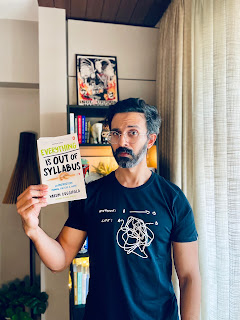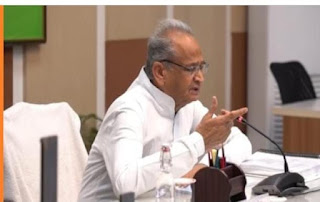Jaipur, 9 February: Scheduled from 5th-14th March , the Jaipur Literature Festival will have an array of themes, India 75 being one of its highlights. As India completes its 75th year of Independence, the 15th edition of the Festival looks at various facets of India’sjourney so far with a diverse set of sessions.
The rich programme will feature,
among others, a session that explores the narratives and counter-narratives of
the electoral process and democratic systems. The panel will be graced by
former Chief Election Commissioner of India and the author of Every Vote Counts Navin B. Chawla; National Spokesperson of the Bharatiya Janta Party
and the author of Makers of Modern Dalit
History Guru Prakash Paswan;
eminent jurist and retired judge of the Supreme Court of India Justice Madan B. Lokur. The esteemed
panel will be in conversation with academic and author Mukulika Banerjee discussing the political and electoral process,
the paradoxes of democracy, and its triumphs and discontents.
The evolution of modern India is
a unique offering to the historical, socio-political, and psychological study
of nationhood. Writer and journalist Saket Suman’s enlightening book, The Psychology of a Patriot, presents a
thought-provoking chronicle of India. Writer, poet, and academic Makarand R. Paranjape’s upcoming books include
JNU: Nationalism and India’s Uncivil War.Gurmehar Kaur’s most recent work, The Young and the Restless: Youth and Politics in India, explores
the electoral and ideological involvement of the youth in the Indian democracy
as it presents a dexterous generational evaluation of political identity.
Eminent academic and authorBadri Narayan's
Republic of Hindutva: How the Sangh Is
Reshaping Indian Democracy examines the evolving structures and systems of
belief that comprise the RSS. In conversation with author, academic, and social
anthropologist Mukulika Banerjee, they will discuss the coming-of-age of an
entire nation focusing on its foundations and future. Mukulika Banerjee‘s new
monograph Cultivating Democracy: Politics
and Citizenship in Agrarian India is a study of the relationship between
political democracy and active citizenship in rural India, particularly West
Bengal. At another session, Banerjee will be in conversation with writer,
journalist, and translator Namita Waikar.
Together, they will explore the democratic values and notions of agriculture
that shape the country’s political landscape(s).
The disability rights movement
in India is salient but underrepresented. Professor and entrepreneur Anita
Sharma called over 2,000 driving schools in the country and found that none
catered to people with reduced mobility. Having survived polio and knowing the
requirements to learn this skill confidently, she began On My Own, a driving
school for people with reduced mobility. Indian social entrepreneur, writer,
and disability rights activist Nipun
Malhotra; journalist and novelist C.K.
Meena, and Senior Vice President and Head of SAP Engineering Academy V.R Ferose have co-authored an
insightful book on the lives of Persons with Disabilities in India, The Invisible Majority: India’s Abled
Disabled. They will be in conversation with Festival producer and Managing
Director of Teamwork Arts, Sanjoy K. Roy
at an illuminating session on the rights and representation of India’s Persons
with Disabilities.
Indian rural middle classes,
comprising many hundreds of millions of people, straddles the worlds of both
agriculture and industry. It is possibly the most dynamic, crucial, and
neglected aspect of the global economy. A leading scholar of rural economy Maryam Aslany’s compelling new book Contested Capital: Rural Middle Classes in
India throws light on the vast, evolving rural middle classes in India, to
which more than a third of the country’s middle class, a key component of
economic analysis and forecasts, belongs. Aslany will be in conversation with
writer, politician, and former diplomat Pavan
K. Varma, whose penetrating study The
Great Indian Middle Class traces the evolution of this socio-economic group
through the twentieth century.
One of India’s most0loved Prime
Ministers, a wise statesman,and benevolent father figure Atal Bihari Vajpayee’s
political legacy embodies the vast and kaleidoscopic history of India,
post-Independence. Senior journalist Sagarika
Ghose, author of the political biography Indira: India’s Most Powerful Prime Minister, presents a deeply
researched and revealing personal portrait of Vajpayee in her new book Atal Bihari Vajpayee. Author, social
scientist, and journalist Nalin Mehta’s
latest book The New BJP: Modi and the
Making of the World’s Largest Political Party examines how the political
party reshaped the Indian polity with its own brand of social engineering,
powered by new caste coalitions, a focus on marginalised social groups and the
making of a women-voter base. They will be in conversation with journalist Mandira Nayar discussing Vajpayee, the
man, and his legacy.
Commemorating the 1971 war
between India and Pakistan, Operation X,
written by former Indian Navy Officer Captain
MNR Samant and author Sandeep
Unnithan, is the untold story behind one of the world’s largest covert
naval wars. Naval Commando Operations (X) was the Directorate of the Naval
Intelligence’s code for a series of complicated guerrilla operations directed
against the maritime jugular of the Pakistan Army in erstwhile East Pakistan. Collaboratively
they will explore the inner world of this conflict and its many intricacies
with naval historian Commodore Srikant
B. Kesnur.
India’s response to the COVID-19
outbreak followed by a total shutdown marked an unimaginable national tragedy
leaving millions of migrant workers stranded, starving and unemployed. Award-winning filmmaker Vinod Kapri’s 1232 Kms documents the journey of seven migrant workers to their
village, a crisis faced by millions who were forced to walk hundreds of
kilometres home, through deadly conditions, abandoned by an administration with
only a shrug to offer for their hardship. Fellow journalist and author Puja Changoiwala’s Homebound tells the story of an unrelenting family determined to
survive and hope against a humanitarian catastrophe. In conversation with
academic and author Chinmay Tumbe,
Kapri and Changoiwala will discuss the faces and forces at the centre of the
exodus and its numbers.
At a session concentrated on
‘Sri Aurobindo’, medical doctor, poet, and philosopher Pariksith Singh and writer Makarand R. Paranjape, in conversation
with academic, editor, and writer Malashri
Lal, will explore their perspectives of Sri Aurobindo’s philosophy and his
‘inner quest’ as articulated in his writings and life. In his edited anthology,
‘Sri Aurobindo’, Paranjape explores
the brilliant and complex mind of a remarkable yogi and seer-poet. Sing's book Sri Aurobindo and the Literary Renaissance
of India compares Sri Aurobindo with fifteen titans of philosophy, starting
from the likes of Nietzsche and Derrida.
The legendary and emblematic
names in Hindi literature- Ramdhari Singh DinkarandSubhadra Kumari Chauhanevoke
idealism and inspiration in equal measure. Dinkar’s nationalist poetry, written
before India’s Independence, was a prelude to the dawn of a new sensibility
whereas Chauhan's iconic poem, Jhansi ki
Rani remains fresh in the hearts, minds, and lips of successive
generations. Writer, poet, and musicologist Yatindra Mishraand scholar, writer, academic and historian, Tripurdaman Singh will speak of the
lives and legacy of the two poets, their deep commitment and rooted patriotism,
and the impact they continue to have on the identity and understanding of Hindi
literature.





